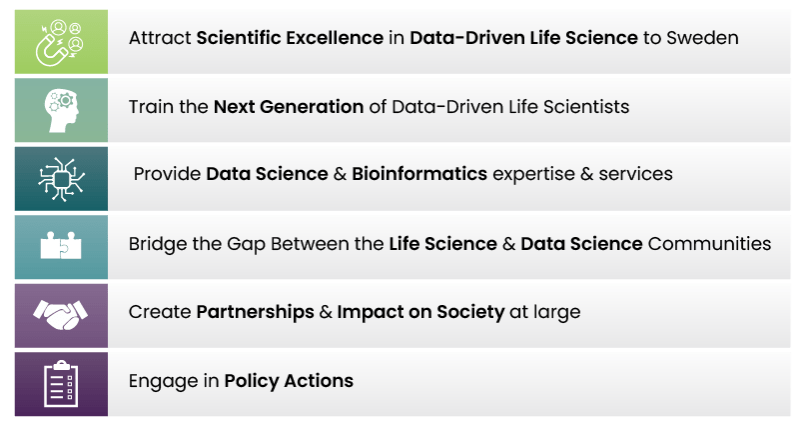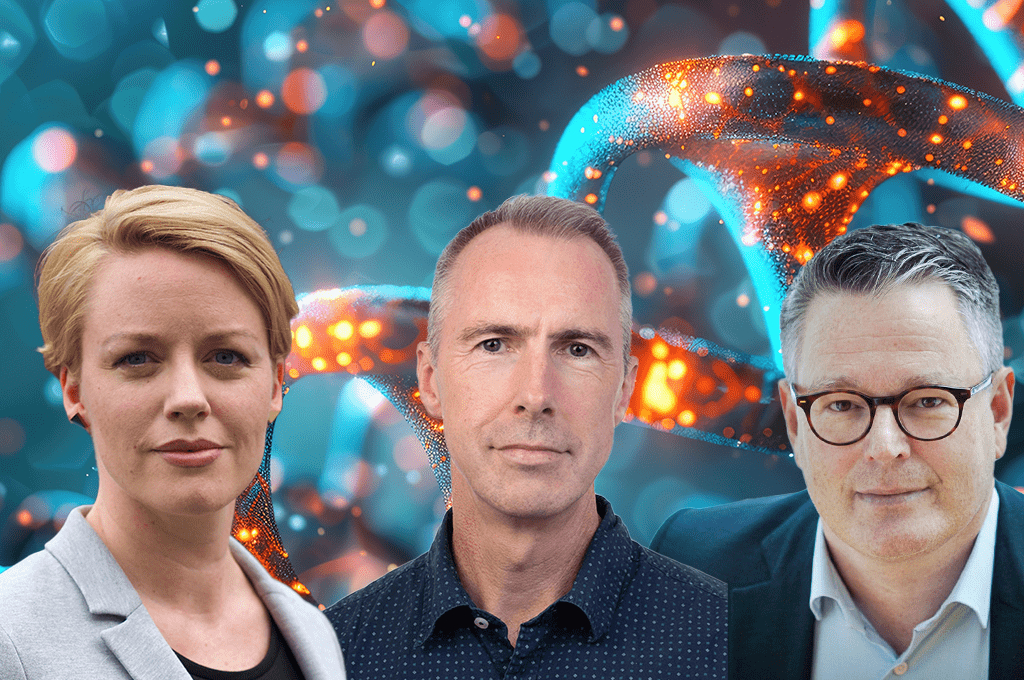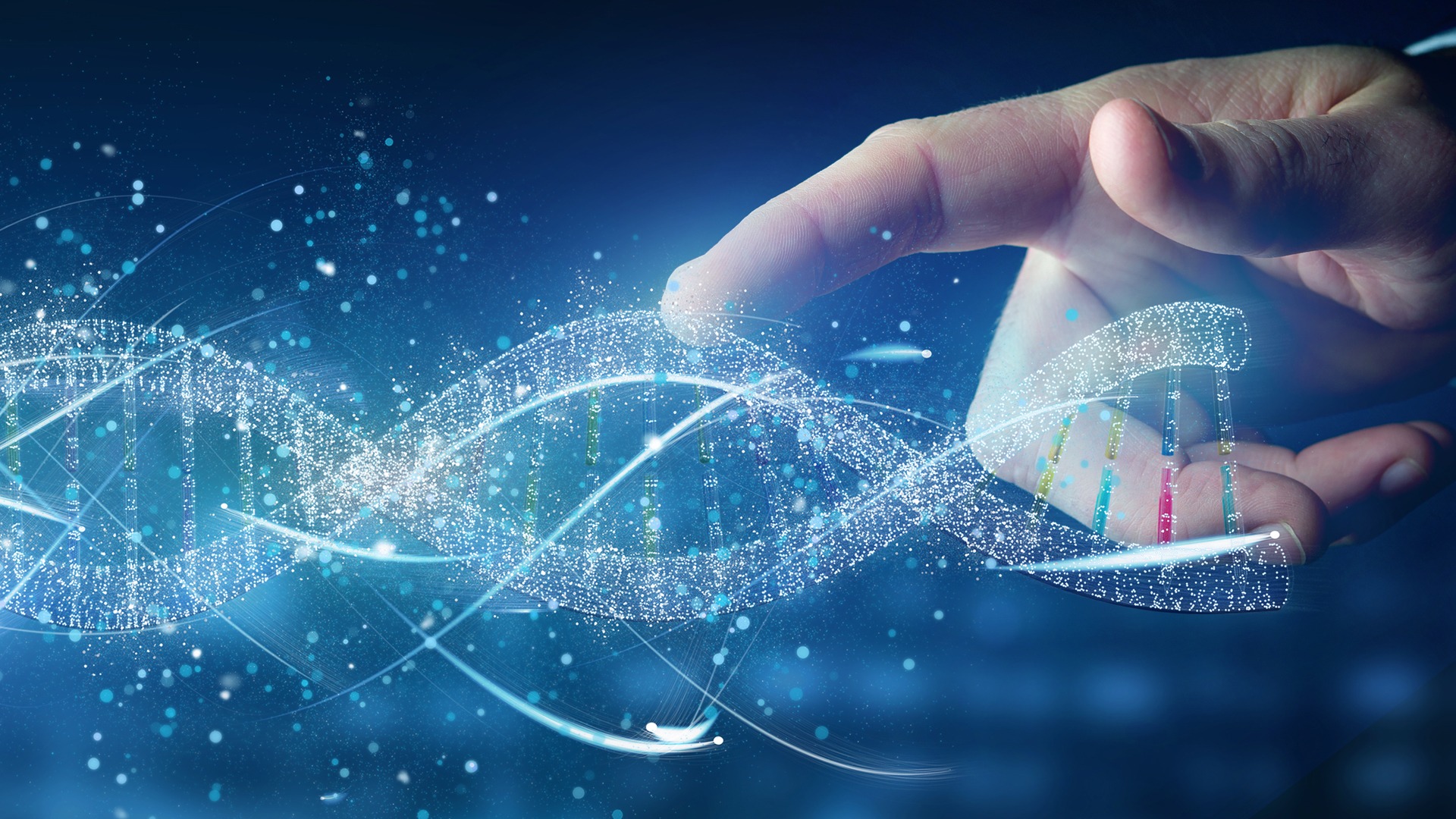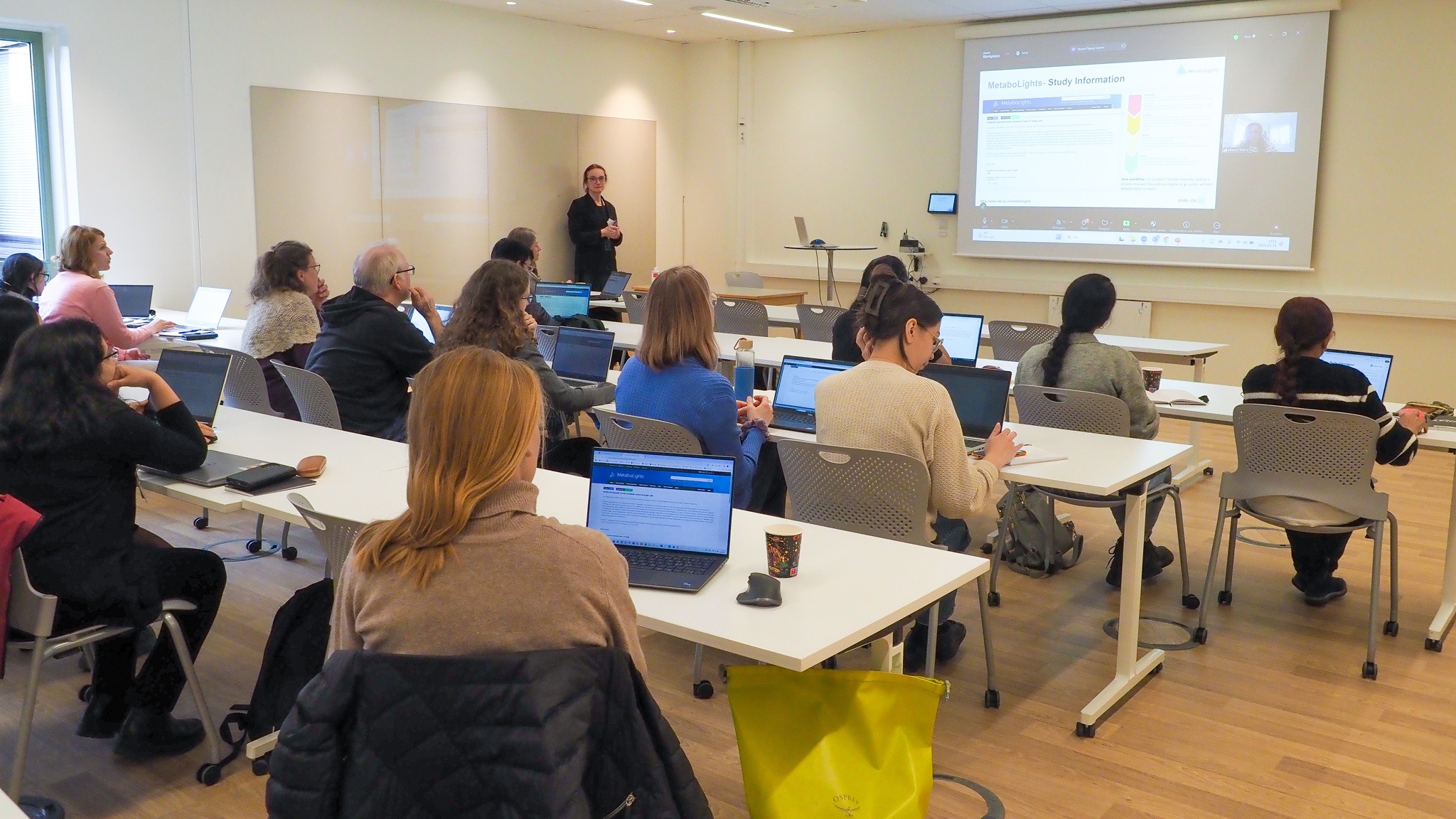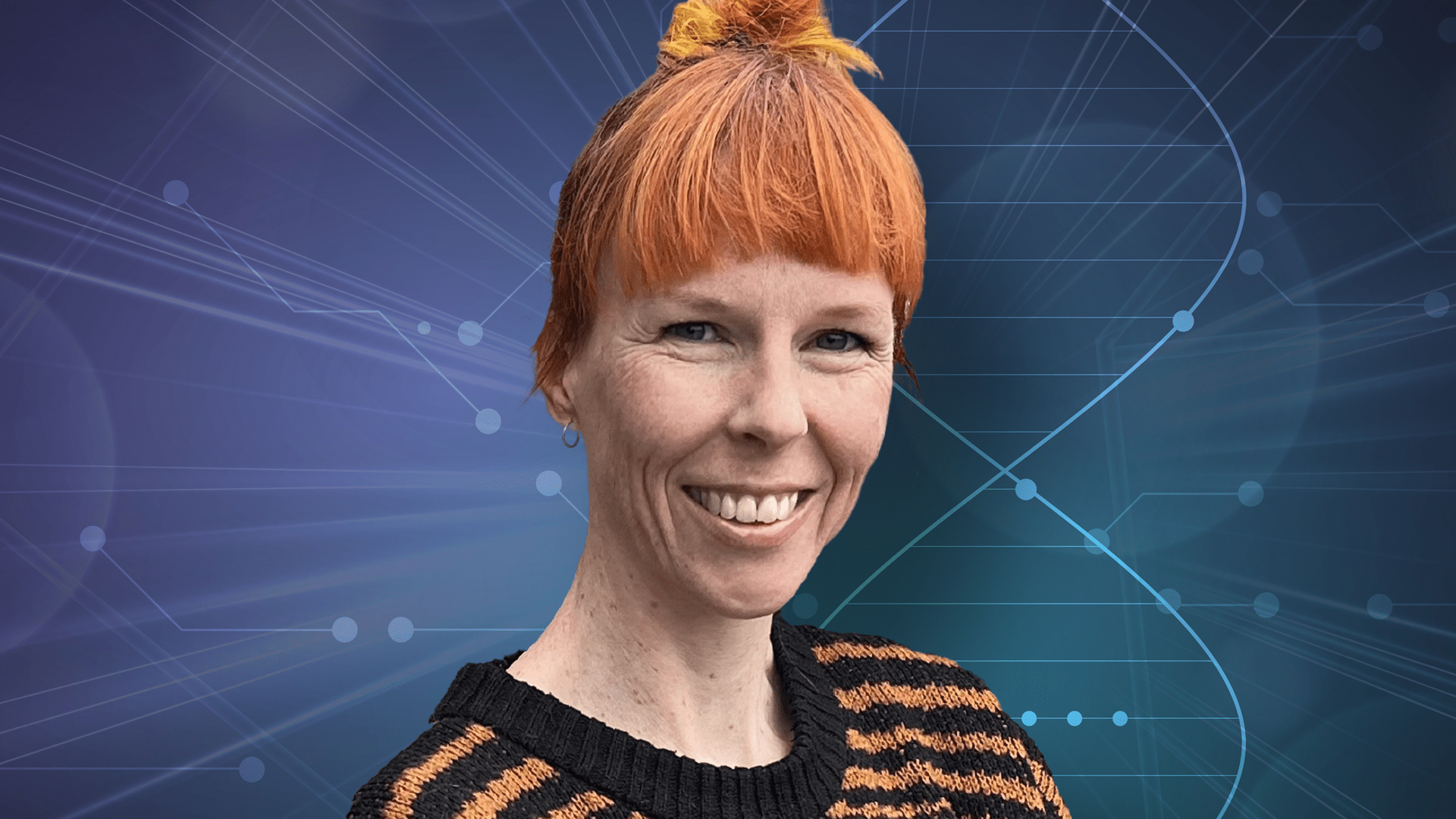Updated DDLS Strategy launched
The SciLifeLab & Wallenberg National Program for Data-Driven Life Science (DDLS) has recently updated its strategy. With its vision, “The future of life science is data-driven”, the DDLS program aims to change how life science is practiced by equipping the research community with essential data-driven skills and capabilities.
The practice of life science is continuously becoming more data-dependent, and the amount and complexity of data is growing exponentially. The Life science community will need significantly more data analysis expertise and entirely new capabilities will be developed, such as Artificial Intelligence (AI). This is the basis for the 12-year, 3,1 Billion SEK, DDLS program, announced in late 2020, and funded by the Knut and Alice Wallenberg Foundation. SciLifeLab, as the main host, has worked with the eleven participating organizations (ten universities, Chalmers, GU, KI, KTH, LiU, LU, NRM, SLU, SU, UmU and UU, and the Swedish Museum of Natural History, NRM) to formulate a long-term strategy for the program.
The field of Data-driven life science focuses on using data, computational methods and artificial intelligence to study biological systems and processes. The approach includes assembling, sharing, integration and advanced analysis of large amounts of data from diverse sources, including experiments, observations, and simulations, in order to gain a better understanding of how living organisms’ function.
The program aims to recruit 39 DDLS fellows, young scientists who will bring cutting-edge expertise to Sweden. The fellows will develop a network of collaborations across the 11 partners. The program will also include around 250 PhD positions and 200 postdoc positions, ensuring the programs contribution to a strong buildup of talent and competence for the next phase in life science.
“The DDLS program has gone through a strong starting period and now is a good time to update the strategy for the next 10 years. We have gained experience on the recruitment of the first 20 DDLS fellows as well as running the first round of research grants between DDLS and WASP. There have also been several major global developments, such as the increasing opportunities with generalized AI in the recent 6 months”, says SciLifeLab and DDLS Director Olli Kallioniemi.
The new version of the DDLS strategy, a document that has been developed by the DDLS steering group with input from the funder and the 11 participating organizations, as well as the SciLifeLab Board, SciLifeLab International Advisory Board (IAB), SciLifeLab Management Group, SciLifeLab Operations Office, SciLifeLab Data Centre, NBIS, and in dialogue with other KAW-funded research programs WASP, WASP-HS and WCMM, is now publicly available. Additionally, input has also been gathered from the organizations participating in meetings where the DDLS strategy was presented and discussed.
The long-term strategy, jointly created with all stakeholders, ensures that the ambitions of the national DDLS program become successful and create synergistic benefits for the entire life science ecosystem.
The updated strategy, “The future of life science is data-driven”, is based on six main objectives (image below) that will help accomplish the mission to accelerate the data-driven life science paradigm in Sweden, making an impact on Swedish life scientists and, in the long run, the entire society.
